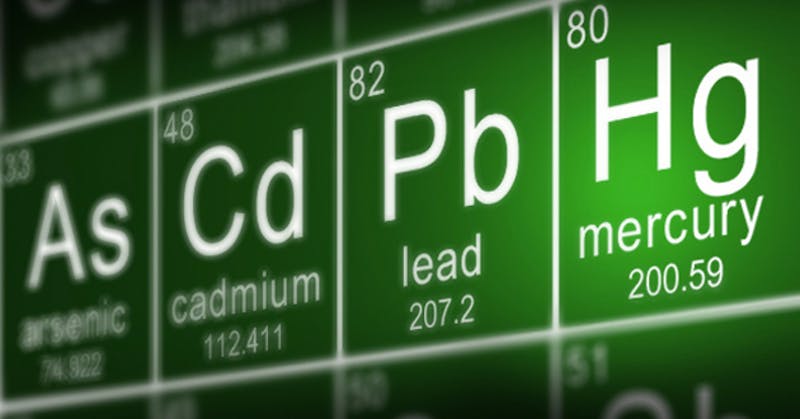USP Heavy Metal Analysis in Food Products
The United States Pharmacopeia (USP) [1] <232> standard provides a comprehensive framework for the detection and quantification of heavy metals in food products. This method ensures that food items meet stringent safety standards, safeguarding public health from exposure to harmful levels of lead (Pb), cadmium (Cd), mercury (Hg), arsenic (As), and other potentially toxic elements.
Heavy metal contamination can arise from various sources such as soil, water, air, and packaging materials. Compliance with USP is crucial for food manufacturers to ensure the safety of their products. The testing process involves meticulous sample preparation followed by instrumental analysis using validated methods like Inductively Coupled Plasma Mass Spectrometry (ICP-MS) or Flame Atomic Absorption Spectroscopy (FAAS). These techniques provide high sensitivity and accuracy, enabling precise quantification even at trace levels.
Sample preparation plays a critical role in ensuring reliable results. This typically includes digestion of solid samples using strong acids like nitric acid, followed by dilution to the appropriate concentration range for analysis. The choice of method depends on the matrix type (solid vs liquid) and the expected metal concentrations. For instance, certain vegetables or grains may require extended digestion times compared to juices or soft fruits.
The USP protocol emphasizes precision and accuracy in both sample preparation and instrumental analysis. Compliance officers and quality managers rely heavily on these tests to ensure that their products comply with regulatory requirements set by the FDA (Food and Drug Administration) and other national bodies. R&D engineers often use this data to refine processing techniques or reformulate ingredients to reduce heavy metal content.
Real-world applications of USP include routine testing in manufacturing plants, third-party audits, and batch release verification before product distribution. In the case of recalls, prompt analysis can help identify contaminated batches early in the supply chain, preventing potential harm to consumers.
- Customer Impact and Satisfaction:
- Reduced risk of product liability lawsuits
- Increased consumer trust through transparent testing procedures
- Potential reduction in regulatory penalties and fines
The FDA mandates compliance with USP , making it a vital part of the food safety landscape. By adhering to this standard, companies can demonstrate their commitment to maintaining high-quality products that meet global safety benchmarks.
Eurolab Advantages
EuroLab prides itself on offering world-class USP testing services tailored specifically for the food and feed industry. Our team of experts employs cutting-edge technologies like ICP-MS to deliver accurate, reliable results consistently. We understand that timely reporting is essential in today’s fast-paced regulatory environment.
Our advanced facilities allow us to handle a wide variety of sample types efficiently, from spices and herbs to complex processed foods. Our experienced analysts are well-versed with the intricacies of USP , ensuring that every test adheres strictly to the specified protocol. Furthermore, our commitment to continuous improvement guarantees that we stay at the forefront of analytical methodologies.
For procurement teams looking to source materials from reliable suppliers, EuroLab can perform supplier audits and batch verifications based on USP . This proactive approach helps maintain supply chain integrity and ensures consistent product quality. Our transparent communication process ensures that clients are kept informed throughout the testing lifecycle.
Customer Impact and Satisfaction
- Reduced Risk of Product Liability Lawsuits: By adhering to USP , food manufacturers can significantly lower the risk of lawsuits related to heavy metal contamination. This not only protects their legal standing but also strengthens customer confidence.
- Increased Consumer Trust: The ability to provide transparent and compliant testing results fosters trust among consumers, who increasingly demand safer products.
- Potential Reduction in Regulatory Penalties: Compliance with USP can help avoid hefty fines imposed by regulatory bodies for non-compliance. This financial savings directly impacts the bottom line positively.
International Acceptance and Recognition
EuroLab’s USP testing services are internationally recognized, ensuring that our clients meet global standards for food safety. Our certifications include ISO 9001:2015 for quality management systems, ISO/IEC 17025 for technical competence in calibration and testing laboratories, and IEC 62788 for proficiency testing programs.
Our robust network of international partnerships ensures seamless compliance with regulatory requirements across multiple jurisdictions. Whether you are exporting to Europe, Asia, or the Americas, we have the expertise to meet your specific needs. Our clients benefit from our global reach and local knowledge, allowing them to navigate complex regulatory landscapes confidently.





